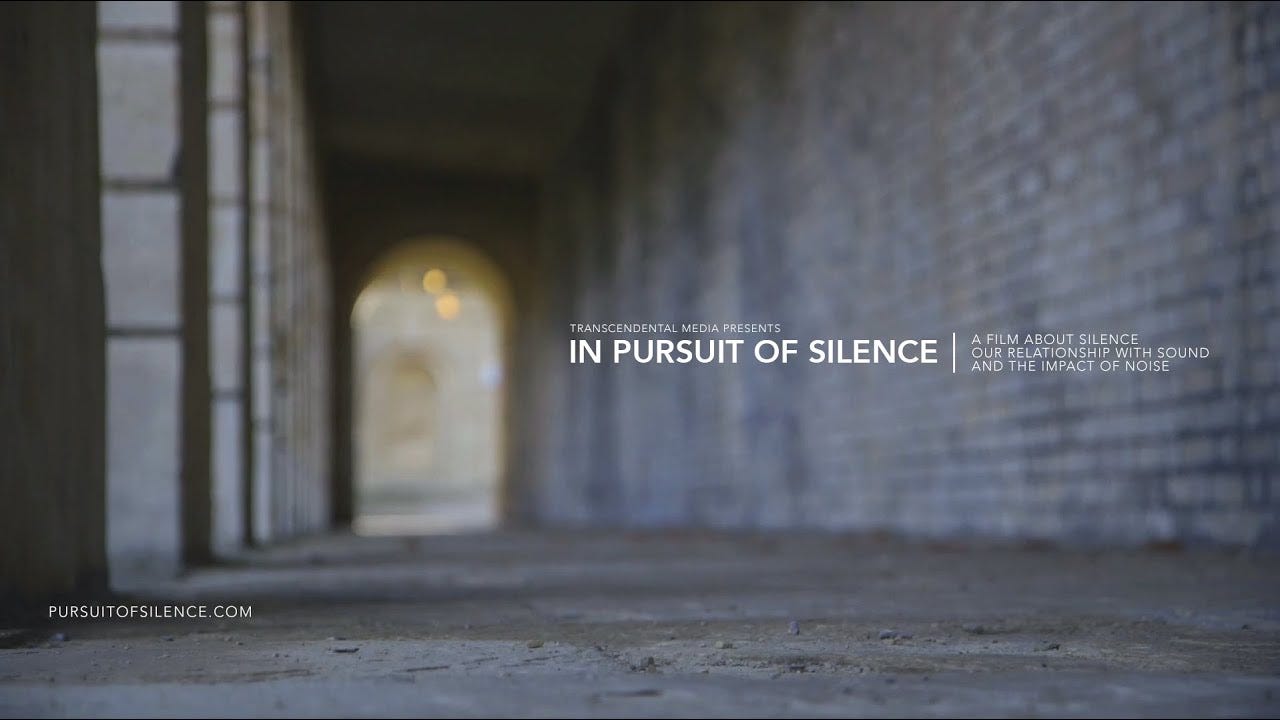This excellent 80-minute documentary was released ten years ago (2015), and I’m pleased to see it posted for free viewing on YouTube. It addresses the serious problem of noise pollution, which is inflicted on us (or which we inflict on ourselves) daily, adversely affecting our mental and physical health.
I have nothing to add to the message of the video, except to say that it’s a vital one and I endorse it wholeheartedly. Our civilization’s collective sanity appears to be disintegrating rapidly. One factor that contributes to that condition is the inundation of our senses by a continuous racket, which keeps our minds in a state of inner confusion, filled with chaotic impressions and babbling. It is a sonic, mostly technologically-generated bombardment that, instead of stimulating thoughtfulness and interior tranquility, smashes the possibility of either.
Here is the video link:





Thank you, Addison, for posting this video on silence. I have felt like I’m alone in detesting noise pollution, and frequently I try to imagine what daily life sounded like before the internal combustion engine. It was interesting to me that I only noticed the aural onslaught after coming back to one of the world’s largest cities after spending 3 years away in a remote log home in the mountains. I never thought about silence in those mountains—maybe because the sounds of nature—wind through the pines, a distant barking of a dog, the howling of the coyotes, the hoot of a great gray owl, rain on the metal roof, a log moving in the wood stove at night—are so companionable. Even my dog never barks as though she too appreciates those strains of the natural world. In the great cities it almost feels as though the constant racket is purposeful, meant to drive peace away. I find the sounds my house makes as the logs cool down at night so comforting, taking up a muted quiet conversation amongst themselves. One person in the documentary did say that silence isn’t something exotic, and yet the various scenes of the tea ceremony and the monastery almost suggested that silence is an exotic, esoteric landscape that isn’t for everyone and I certainly don’t agree with that. But maybe that was a way to underscore how unusual it is to find silence in our world today.
Two responses well up from deep within. (1.) Silence frightens adults and children whose attention and inner voice of ‚who they are’ suffers daily invasions and debris from chatter, unsocial media, gossip, and allowing themselves to be tossed on an unruly sea of half-truths. (2). Arvo Pärt‘s ‚De Profundis.‘